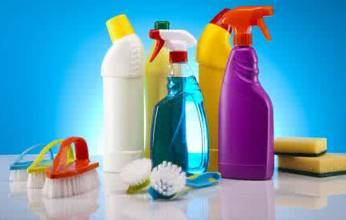 English
English Español
Español  Português
Português  русский
русский  Français
Français  日本語
日本語  Deutsch
Deutsch  tiếng Việt
tiếng Việt  Italiano
Italiano  Nederlands
Nederlands  ภาษาไทย
ภาษาไทย  Polski
Polski  한국어
한국어  Svenska
Svenska  magyar
magyar  Malay
Malay  বাংলা ভাষার
বাংলা ভাষার  Dansk
Dansk  Suomi
Suomi  हिन्दी
हिन्दी  Pilipino
Pilipino  Türkçe
Türkçe  Gaeilge
Gaeilge  العربية
العربية  Indonesia
Indonesia  Norsk
Norsk  تمل
تمل  český
český  ελληνικά
ελληνικά  український
український  Javanese
Javanese  فارسی
فارسی  தமிழ்
தமிழ்  తెలుగు
తెలుగు  नेपाली
नेपाली  Burmese
Burmese  български
български  ລາວ
ລາວ  Latine
Latine  Қазақша
Қазақша  Euskal
Euskal  Azərbaycan
Azərbaycan  Slovenský jazyk
Slovenský jazyk  Македонски
Македонски  Lietuvos
Lietuvos  Eesti Keel
Eesti Keel  Română
Română  Slovenski
Slovenski  मराठी
मराठी  Srpski језик
Srpski језик
How to Safely Store Chemical Products in Daily Life?
2025-10-21
How to Safely Store Chemical Products in Daily Life?

The core principles of safely storing chemical products in daily life are classification and isolation, controllable environment, and clear labeling to prevent risks such as leakage, corrosion, or fire due to improper storage.
I. Core Storage Principles
1. Categorize and store separately to avoid reactions from mixing
Store chemicals according to their properties. For example, keep acids (such as toilet cleaners) and bases (such as 84 disinfectant) completely isolated to prevent the generation of toxic gases when mixed.
Flammable products (such as alcohol and gasoline) should be stored separately in a cool place, away from fire sources and power sources, and must not be stored with oxidizers (such as bleach).
2. Control the storage environment
Temperature: Most chemical products should be stored away from light and in a cool place, avoiding direct sunlight or proximity to heat sources such as heaters or stoves to prevent evaporation, deterioration, or explosion.
Humidity: Products that are prone to deliquescence or deterioration (such as certain cleaning agents and fertilizers) should be sealed and stored in a dry place, and desiccants can be used to prevent moisture.
3. Container and Label Management
Prefer to store in the original packaging. If a new container is needed, choose a corrosion-resistant and well-sealed container (such as glass or plastic bottles), and label the product name, expiration date, and hazard properties.
Keep out of reach of children and pets: Store chemical products in high, locked cabinets or dedicated storage boxes to prevent accidental handling or ingestion.
II. Prohibitions and Emergency Response
Prohibited actions: Do not use beverage bottles to repackage chemical products to avoid accidental ingestion; do not discard expired products at will. They should be classified as "hazardous waste" for disposal or contact the community for recycling.
Emergency measures: In case of leakage, wear gloves and a mask first, use dry cloth or sand to absorb the leaked substance, and then rinse with clean water; if it comes into contact with the skin or is ingested by mistake, immediately rinse with plenty of water and seek medical attention promptly.




